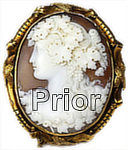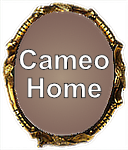
Whittier Cameo
Lydia Maria Child
Lydia Maria Child

|

|

|
 Played by Kathy McLaughlin
Played by Kathy McLaughlin
 At the time churches, colleges, and courts were all against Abolitionists. We were considered dangerous
members of society. They felt that "we preached anarchy in the name of humanity"; it was a dangerous
cause. John was denounced for his beliefs when he wrote a pamphlet called Justice and Expediency
which called for an end to slavery NOW. He received death threats, was run out of town by mobs, and
was stoned during his travels around the country.
Although I was a Unitarian and John was a Quaker, we had many things in common besides being
abolitionists. We both believed in women's and American Indian rights, American expansion. We were
also editors, novelists, and journalists.
During the anti-slavery struggle, the movement started to advocate violence as an acceptable weapon
for battling slavery, instead of changes through legislation. At the time I was the editor of the National
Anti-Slavery Standard, but I had to leave the position as I could not promote violence. John, trained to
quiet activism, and non-resistance, held the same belief that progress should be made by changing the
laws. I also believed in woman's rights, but felt that there couldn't be advancement for women until
slavery was abolished.
I was married to Boston lawyer David Lee Childs, who also was an activist. We had no children. My
death came as a heavy blow to Whittier and he attended my funeral. He noted that my pallbearers
were elderly farmers and, as they carried my casket, a rainbow appeared in the western sky. I hope he
took that as a sign.
John and I had many mutual friends in common and would meet up at homes of these acquaintances. I
remember once sitting side by side talking with him and his face filled with tenderness that he could not
express in words.
As a writer, I may be best known for my Thanksgiving poem Over the River and Through the Woods. A
documentary film has been made of my life called Over the River.
At the time churches, colleges, and courts were all against Abolitionists. We were considered dangerous
members of society. They felt that "we preached anarchy in the name of humanity"; it was a dangerous
cause. John was denounced for his beliefs when he wrote a pamphlet called Justice and Expediency
which called for an end to slavery NOW. He received death threats, was run out of town by mobs, and
was stoned during his travels around the country.
Although I was a Unitarian and John was a Quaker, we had many things in common besides being
abolitionists. We both believed in women's and American Indian rights, American expansion. We were
also editors, novelists, and journalists.
During the anti-slavery struggle, the movement started to advocate violence as an acceptable weapon
for battling slavery, instead of changes through legislation. At the time I was the editor of the National
Anti-Slavery Standard, but I had to leave the position as I could not promote violence. John, trained to
quiet activism, and non-resistance, held the same belief that progress should be made by changing the
laws. I also believed in woman's rights, but felt that there couldn't be advancement for women until
slavery was abolished.
I was married to Boston lawyer David Lee Childs, who also was an activist. We had no children. My
death came as a heavy blow to Whittier and he attended my funeral. He noted that my pallbearers
were elderly farmers and, as they carried my casket, a rainbow appeared in the western sky. I hope he
took that as a sign.
John and I had many mutual friends in common and would meet up at homes of these acquaintances. I
remember once sitting side by side talking with him and his face filled with tenderness that he could not
express in words.
As a writer, I may be best known for my Thanksgiving poem Over the River and Through the Woods. A
documentary film has been made of my life called Over the River.